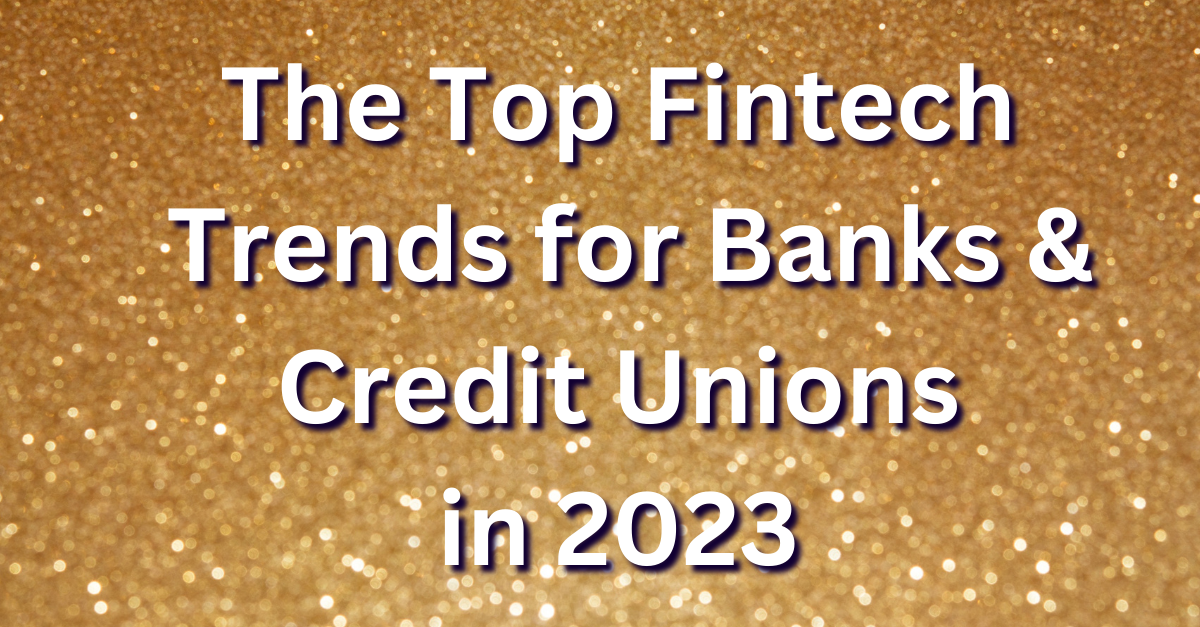|
The fintech industry is constantly evolving and it can be difficult to keep up with the latest trends. As we move into 2023, there are several key areas that are expected to drive significant change and innovation in the world of banking and finance.
These technologies include 1.) the continued growth of open banking and the use of APIs to facilitate data sharing and collaboration, 2.) the increasing popularity of digital payments and mobile banking, 3.) the adoption of artificial intelligence (AI) and machine learning, and 4.) the emergence of blockchain and distributed ledger technology (DLT), and the importance of cybersecurity in protecting against financial threats. In this article, we will explore each of these trends in more detail and discuss their potential impact on the banking and credit union industry. Open Banking and APIs: Open banking refers to the practice of banks making their data and infrastructure available to third parties through APIs (application programming interfaces). This allows fintechs and other organizations to build financial products and services on top of the banks' existing platforms. It is important for banks to familiarize themselves with open banking and APIs due to their potential impact on the financial industry.
There are several benefits to being informed about digital payments and mobile banking for banks.
Listed below are a few reasons why it would be helpful for banks and credit unions to know more about artificial intelligence and machine learning:
Blockchain and distributed ledger technology (DLT) have the potential to revolutionize the financial industry, and it is important for banks to be aware of their capabilities and potential applications.
In today's digital age, cybersecurity is a critical concern for all businesses, including banks. With the increasing prevalence of cyber threats, it is essential for banks to prioritize cybersecurity measures in order to protect their customers' financial information and assets.
In conclusion, the fintech industry is constantly evolving and it is important for businesses and individuals to stay informed about the latest trends. In 2023, we can expect to see significant growth and development in the areas of open banking, APIs, digital payments, mobile banking, AI, machine learning, blockchain, DLT, and cybersecurity. To stay ahead of the competition, it's important for businesses to keep up with the latest trends and adapt to new technologies as they emerge. Attending the 2023 U.S. Fintech Symposium is one way to stay up-to-date on these technologies and their potential impact on the financial sector. The U.S. Fintech Symposium provides a valuable opportunity to network with industry professionals, learn about the latest trends and developments and gain a better understanding of how these technologies will shape the future of finance.
0 Comments
Your comment will be posted after it is approved.
Leave a Reply. |
